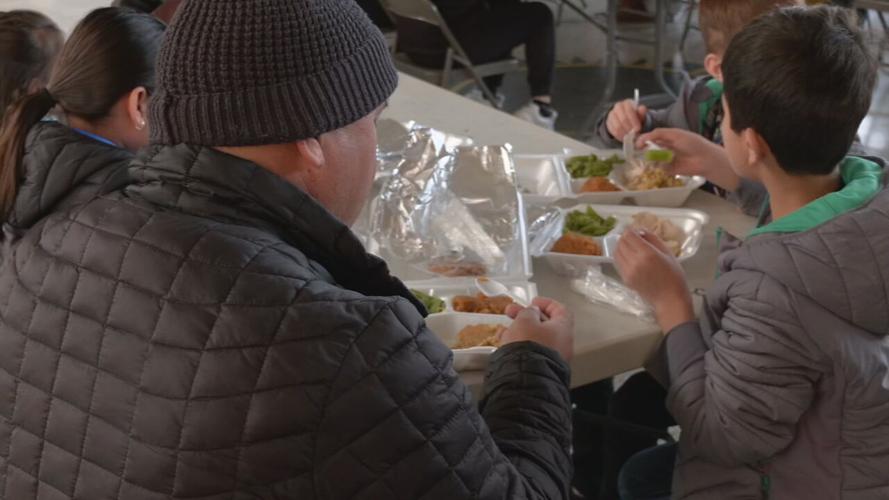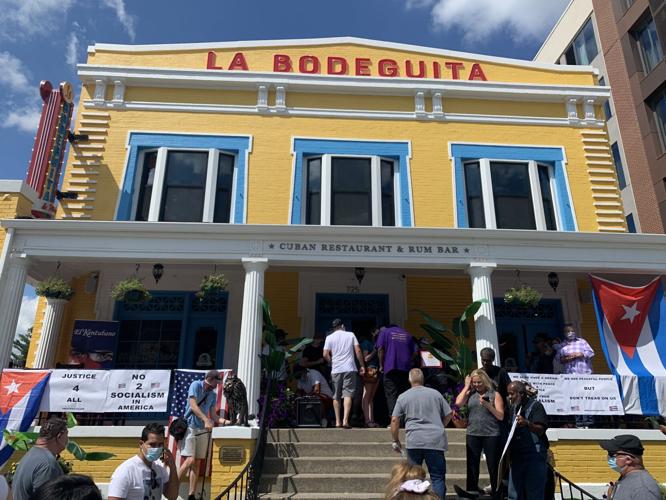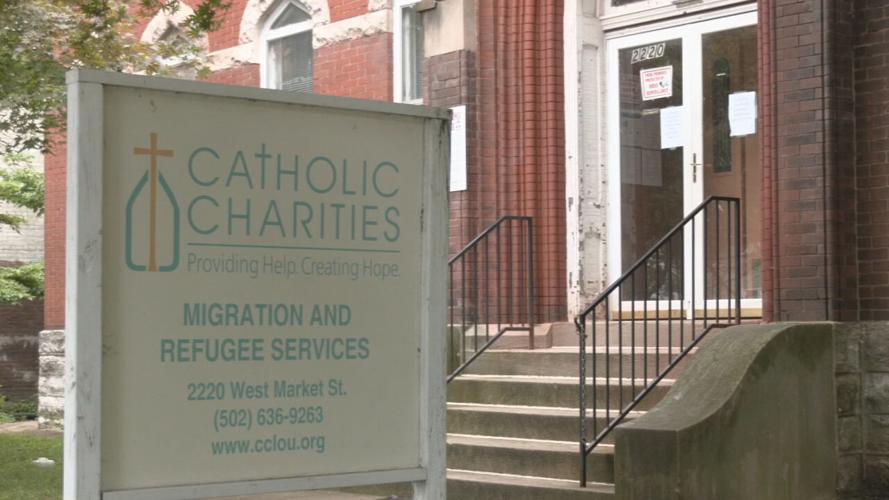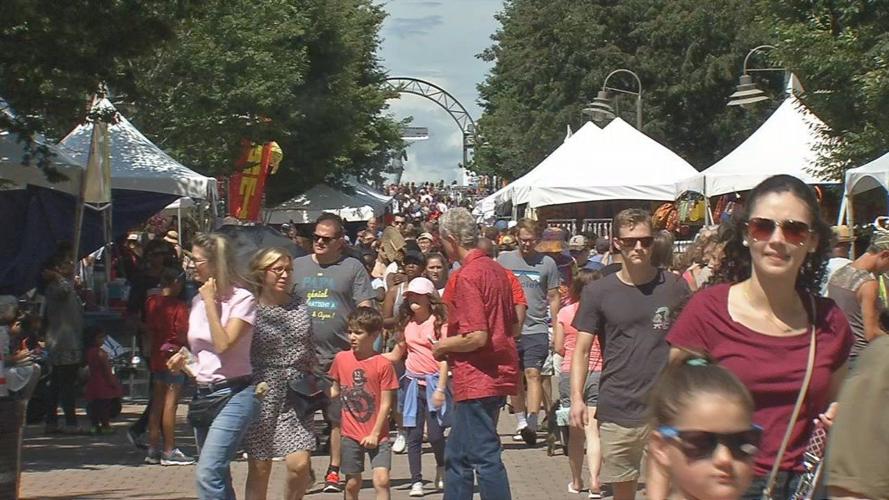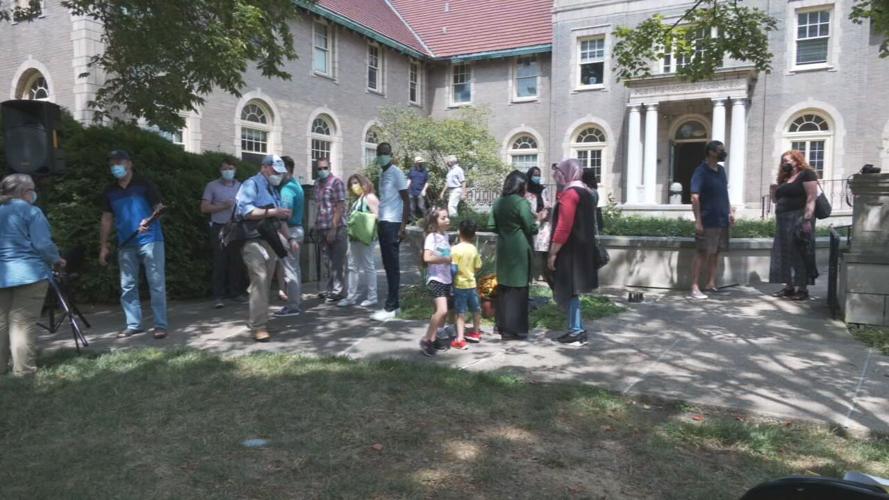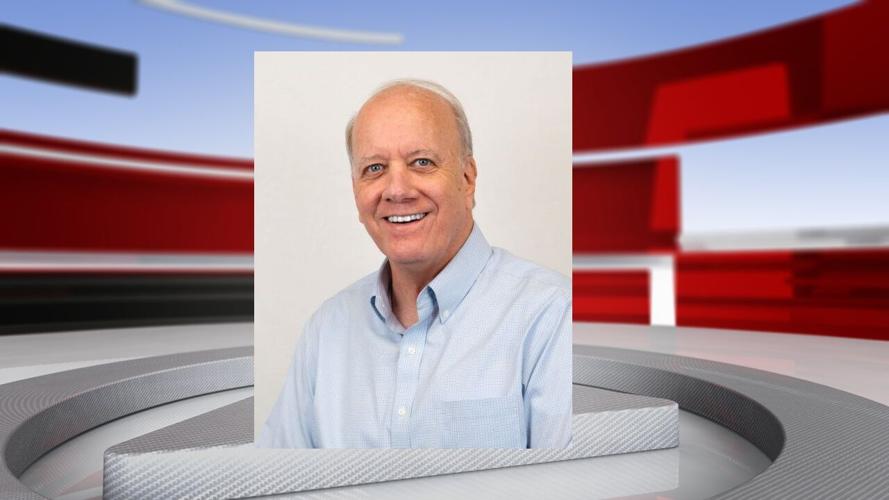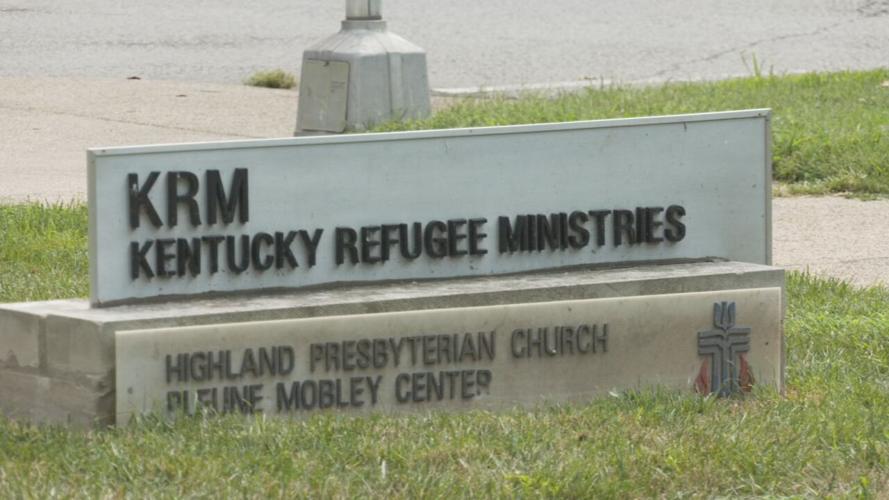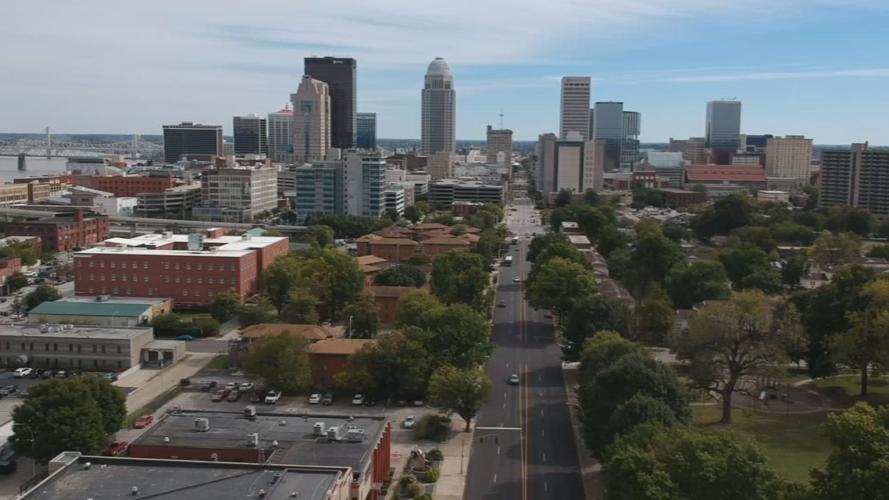LOUISVILLE, Ky. (WDRB) -- How has the COVID-19 pandemic affected immigration to Louisville?
Whether it’s been professional talent acquisition, refugee resettlement or secondary migration, Louisville’s economy and culture has been bolstered by immigrants, increasingly more in the past decade. And that trend toward globalization hasn’t been slowed due to the COVID-19 pandemic, according to city officials.
“Our foreign-born residents make Louisville a better place and represent a significant portion of our future growth—filling jobs, building businesses, and infusing our region with a vibrant and diverse culture attractive to others seeking a great place to live and work,” Mayor Greg Fischer said in a statement.
The city’s population growth has become reliant on immigrants in recent years.
While Louisville’s foreign-born population has increased, its native-born population has decreased. The foreign-born population from 2015 to 2019 increased cumulatively by 19%, according to Kevin Lynch, who was recently appointed as director of the Louisville Metro Office for Globalization.
The Office of Globalization expects that percentage of foreign-born residents to increase in the coming decades.
“Most of the growth in Louisville is attributed to immigrants, in one form or another,” Lynch said. “It’s been a huge impact in our community. It’s very necessary.”
In terms of labor force participation, immigrants are working at a higher rate than the native-born population, according to Lynch. He said the labor force participation rate is about 70% for immigrants in Louisville, compared to 62% overall for the city.
Some of those workers are taking on skilled professions that require a higher level of education.
“It’s a strong category of people,” Lynch said. “In education, the people born in the U.S. in Louisville, about 13.6% have gone to graduate school or have a professional degree. That number is 17.3% for immigrants.”
Amos Izerimana, program manager of the Office for Globalization, said Louisville have been able to attract international talent.
Diego Mazzitelli is a software engineer for Globant.
Mazzitelli arrived in Louisville from Argentina in 2016 because of work responsibilities for Globant, but his stay was short-lived, due to a promotion that moved him to Miami.
When the COVID-19 pandemic hit the U.S. and allowed for remote work, Mazzitelli and his wife, Virginia, decided to search for a home that would be more accommodating for their family and young daughter.
They considered New York City, Nashville, Chicago and Dallas, among other places, but their prior experience in Louisville brought them back to Kentucky.

Diego Mazzitelli with his wife, Virginia, and daughter at the Big Four Bridge in Louisville, Ky.
The Senior Tech Director at Globant and his family moved back to Louisville last July.
"Once you get to know it, you really want to stay, and that's what happened to us," Mazzitelli said. "We feel that it's a great place to raise a family, so that's why we came back."
Although Mazzitelli hadn't heard of Louisville until he started working with Humana for his company, it's been a city he's enjoyed living in and learning more about.
"We found Louisville to be very multicultural, very diverse. We've made a lot of friends, some Argentinian and a lot who were born and raised here," Mazzitelli said.
Around 19% of the foreign-born community represent professional services like education, health care and social work.
Making up almost 10% of the workforce in Louisville, the city’s immigrant population has been critical.
“During the pandemic, our foreign-born residents filled essential jobs that kept our economy and city running, including jobs in healthcare, transportation, food processing, and restaurant and food service,” Fischer said.
Resettlement opportunities in Louisville
The COVID-19 pandemic has changed how local nonprofits can support immigrants and refugees arriving in Louisville.
Colin Triplett, director of migration and refugee services for Catholic Charities of Louisville, said it was an adjustment with communication challenges due to language barriers and online accessibility.
“Information was hard to come by, so we brokered a lot of information sharing,” Triplett said.

Catholic Charities on West Market Street in Louisville. (WDRB photo)
From offline communication for contact tracing to preventive measures against COVID-19 and addressing trepidations around vaccines, local nonprofits have been supporting newcomers to Louisville throughout the pandemic.
Catholic Charities, along with Kentucky Refugee Ministries and Americana Community Center, among other organizations, have helped people navigate through the pandemic.
“We have a very welcoming community, very integrated as far as different agencies really work together well,” Triplett said. “If there’s anything that could be positive that came out of it, really it’s that collaboration between different agencies with different kinds of missions but really coming together to address this crisis.”
At the onset of the pandemic, offices were closed, so communication was harder than ever before.
Things like English language instruction or getting people to doctor’s appointments had to be restructured. Internet access and technology that could allow for digital communication had to be set up.
“A lot of cultures are really about interpersonal relations, and trust is built on seeing somebody’s face, having a conversation with them,” Triplett said. “It’s always easier to have a conversation with somebody in person.”
While the U.S. border was closed for months during the pandemic, that didn’t halt local nonprofits’ services.
Triplett estimates Catholic Charities of Louisville has helped more than 900 people who sought support from the organization in the past couple years. While a majority of those people aren’t direct arrivals from abroad, instead from other parts of the U.S., the Louisville area is assisting resettlement of Afghan refugees.

People gathered at the Kentucky Refugee Ministries on Aug. 22, 2021 in support of Afghan refugees.
Kentucky Refugee Ministries has resettled more than 400 Afghan refugees, with 286 of those finding a home in Louisville.
Triplett said resettlement for Afghan refugees has gone well. People have already been set up in permanent housing and found jobs as they try to establish themselves in a new country.
Why are people coming to Louisville? Triplett said it’s because the city is a welcoming place.
“People are friendly, relatively low cost of living here and a very high abundance of jobs,” Triplett said.
Beyond being a welcoming city, families already settled in Louisville are vouching for it.
“What we’ve seen here, somebody’s cousin is here, and they like it, so when a family member is coming from overseas, they’ll come directly to Louisville,” Triplett said.
Kentucky ranked fifth in the U.S. for refugee resettlement in 2019 with 1,400 people, but that dropped to 219 people in 2020 as the country's ceiling on refugees allowed into the U.S. was lowered to 15,000. That limit has since been raised to 62,500.
Secondary migration creating “Little Havana”
Louisville has benefited from secondary migration, which is when immigrants or refugees move from a U.S. city to another one.
“In recent years, we’ve seen growth in secondary migration,” Izerimana said. “A lot of families are inviting their family members or other friends to come to Louisville.”
Izerimana said Louisville has seen growth in secondary migration from its Cuban population in recent years.
According to the Louisville Metro Office for Globalization, Louisville has an international community representing more than 40 countries. And no international community has had a stronger presence recently than Cuba.
Cuban-born immigrants outnumber the city's second-leading foreign born population, Mexicans, by nearly double, according to the Office for Globalization.
Luis David Fuentes, publisher and editor of El Kentubano, a free publication for the local Hispanic community, arrived in Kentucky 22 years ago. After coming to the U.S. from Cuba, Fuentes lived in Miami and New York before moving to Frankfort, Kentucky. He moved to Louisville a few years later.
“I fell in love with this place,” Fuentes said. “The community started growing up, many Cuban businesses, grocery stores, restaurants.”

Cuban-Americans and allies rally outside the new NuLu restaurant. (WDRB Photo)
Fuentes said because of opportunity and expenses, it’s easier to accomplish financial success in the Louisville area quicker than larger metropolitan areas like Miami or New York City.
“The main reason is because of the standard of life,” Fuentes said. “Here in Kentucky, you have more opportunities, you have better salaries, and everything is cheaper.”
The Cuban community has grown exponentially in the past two decades. Fuentes estimates there were only around 500 Cubans in the area when he arrived in 2000, compared to a number now around 30,000 in Kentucky.
Berta Weyenberg, president of the Cuban American Association of Kentucky, said when the pandemic started in 2020, her organization and El Kentubano held food drives to support local families.
The Cuban American Association of Kentucky is continuing to help families affected by the pandemic, offering translation services, food and household supplies.
Darien Barrios, who was born in Cuba in 1980, is now running for the 3rd District of Kentucky as a resident of Louisville.
“I’m really proud to be part of this community,” Fuentes said. “It’s a thriving community. They are just looking for any kind of opportunity.”
Becoming “Welcoming City” certified
In 2018, Louisville was selected as Certified Welcoming, a designation for cities and counties that have created policies and programs to support immigrant inclusion. There are 12 cities and counties across the U.S. listed as Certified Welcoming, including Baltimore, Pittsburgh, Salt Lake City and Dallas, among other cities.
“We are proud to be the second city in the U.S. certified as a Welcoming City, recognizing the efforts of the Office for Globalization and the entire city to open our arms to foreign-born residents,” Fischer said.
The resources Louisville offers newcomers help the transition to a new country.
Izerimana, who resettled in Louisville in 2007, said Louisville was the only city that had a school specifically dedicated for new Americans.
“I remember going around to different cities and states, telling that story, and people were very jealous,” Izerimana said.
Classes for English as a second language and orientation programs have been offered by Jefferson County Public Schools, Catholic Charties, Americana Community Center, Jefferson Community & Technology College and Kentucky Refugee Ministries.
Triplett said it’s critical to have services that are equitable and language-friendly for newcomers of the city while trust with resettlement agencies help strengthen Louisville.
The certification as a Welcoming City means Louisville has a connected community, Izerimana said.
“It means being able to bring together native- and foreign-born populations to not only interact but to be able to envision what the city could look like together,” Izerimana said.
“You can really see that within the fabric of the city, in every sphere. It’s important for us because it not only creates a strong community, but it’s beneficial for our economy, as we new Americans find a place of belonging.”
Copyright 2022 WDRB Media. All Rights Reserved.
